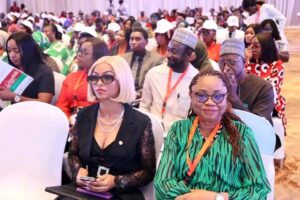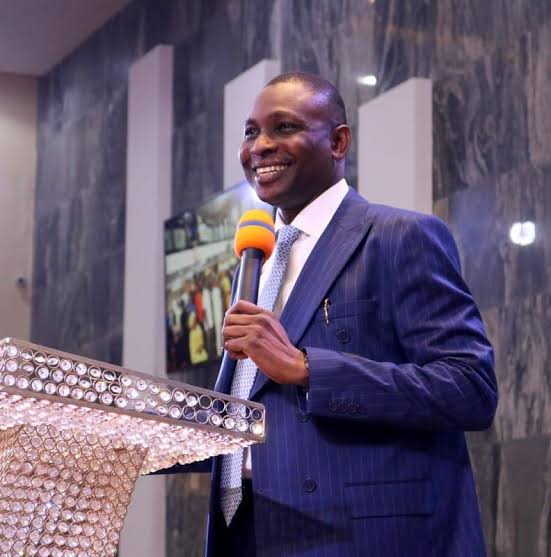Stakeholders in the anti-corruption fight have joined the Economic and Financial Crimes Commission, EFCC in calling for increased youths’ involvement in the fight against corruption.
The calls were made recently at a high-level seminar, organized by the Inter-Agency Task Team, IATT, in collaboration with the European Union , EU, Rule of Law and Anti-Corruption, RoLAC, United Nations Office on Drugs and Crime, UNODC, MacArthur Foundation, and Centre for Democracy and Development, CDD, to mark the 2024 International Anti-Corruption Day.
Speaking at the seminar themed “Uniting with Youth Against Corruption: Shaping Tomorrow’s Integrity,” EFCC Chairman, Mr. Ola Olukoyede, who was represented by the Acting Director of the Department of Policy, Planning, Research, and Statistics, Commander of the EFCC, CE Adejoke Liman, reiterated the Commission’s commitment to fighting corruption through preventive measures and greater youths’ participation.
“I want to congratulate youths across the country on the theme of the 2024 International Anti-Corruption Day.
“The theme resonates strongly with the need for young people to close ranks and confront the monster of corruption.
“Corruption affects every age group but bites harder against the prospects and possibilities of youths who constitute the larger percentage of the population of the country,” he said.
While restating that prevention remains the focus of the Commission under his leadership, the EFCC boss pointed out that the Commission’s Special Control Unit against Money Laundering ,SCUML, has been charting new frontiers in educating and sensitization of Designated Non-Financial Businesses and Professions (DNFB) on money laundering and terrorist financing while the newly established Department of Fraud Risk Assessment and Control, FRAC, in the Commission is tasked with identifying and addressing gaps in systems that enable corruption by delving into the procurement and contract award processes and procedures of federal and states’ Ministries, Departments, and Agencies (MDAs), and now, Local Governments Areas to ensure the enthronement of frameworks that promote transparency and accountability.
“In 2023 alone, SCUML sensitized over 7,000 companies with many companies seeking to open corporate bank accounts turning to the EFCC to obtain SCUML certificates.
“The process has been automated to ensure ease and efficiency. Since the Supreme Court’s judgment on local government autonomy, the EFCC has been working closely with local government Chairmen to sensitize them on the ills of fraud and corruption,” he stated.
In his keynote address, the Attorney General of the Federation and Minister of Justice, Lateef Fagbemi SAN, called on the ruling class to lead by example to inspire youths on the path of ethical behaviours and called for the infusion of anti-corruption studies in school curriculum.
“To secure our youths and reinvigorate them in the anti-corruption fight, we must promote values of transparency, integrity, and accountability.
Anti-corruption education should be included in school curriculums, and mentorship programmes should be strengthened through platforms such as EFCC Integrity Clubs,” he said.
In his remarks, the Chairman of the Independent Corrupt Practices and Other Related Offences Commission (ICPC), Musa Adamu Aliyu SAN, called on students of tertiary institutions to be more forthcoming in reporting cases of sex for marks, while the unemployed among the youth should expose cases of job racketeering.
“Speak up when approached for sexual favours or pressured to pay for jobs.
“These acts are crimes and ICPC is committed to prosecuting perpetrators,” he said. He encouraged youths to remain diligent and hardworking, assuring them that success was achievable without resorting to corrupt practices.
Other notable speakers at the event included Jane O. Onwumere, head of TUGAR and secretary of IATT; UNODC Country Representative Cheick O. Toure; Executive Secretary of NEITI Orji
Ogbonnaya Orji; and representatives from the Nigerian Financial Intelligence Unit (NFIU) and Financial Reporting Council.
They all emphasized the importance of collaboration among anti-corruption agencies and youth engagement in building a culture of integrity and accountability.
A panel of discussion on “The Implementation of the National Anti-Corruption Strategy 2022-2026: Where Are We?” provided insights into the efforts of the EFCC and other anti-corruption agencies to curb corruption in the country.
For greater youths’ involvement in the anti-corruption fight, the panelists noted the importance of anti-corruption clubs in secondary
schools and higher institutions as platforms for instilling integrity among young Nigerians.
The International Anti-Corruption Day is celebrated annually on December 9.
EFCC




